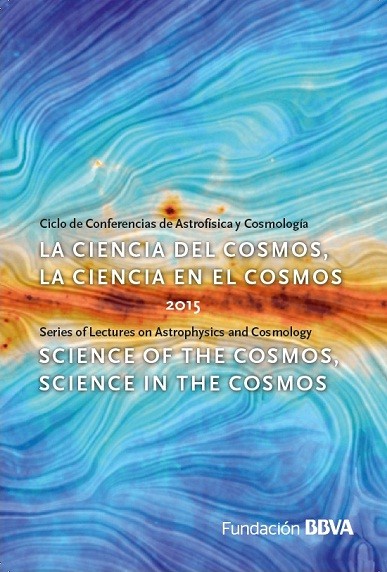
DVD
Science of the Cosmos, Science in the Cosmos
4th Astrophysics and Cosmology Lecture Series (2015)
Research on how the Universe began, what it is made of and what kind of objects it contains is going through something of a golden age. Space missions, large telescopes and ground-based experiments are bringing today’s researchers tantalizingly close to some of the answers science has sought through past millennia. But new questions continue to arise: How many planets similar to Earth are orbiting other stars, and how can we set out to find them? Why, at some point some 13 billion years ago, did a tiny, hot Universe begin expanding in a Big Bang? These are some of the topics covered in the astrophysics and cosmology lecture series organized by the BBVA Foundation.
The lectures are in English with Spanish subtitles and the booklet is published in English and Spanish.
Speakers and lectures:
- Willy Benz, Physics Institute, University of Bern: Comets and Planets
- James E. Peebles, Princeton University: The Discovery that the Universe is Expanding
- Wendy Freedman, University of Chicago: The Universe: Continuing Surprises
- Roger Blandford, Kavli Institute for Particle, Astrophysics and Cosmology (KIPAC), Stanford University: The High Energy Universe: Gamma Rays, Cosmic Rays, Neutron Stars and Black Holes
- John M. Kovac, Harvard University: Earliest Light, from the End of the Earth
- Elena Aprile, Columbia University: The Amazing Liquid Xenon for Dark Matter WIMPs Detection
Director of the series:
• Ana Achúcarro, Leiden University, University of the Basque Country
